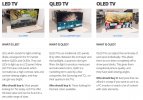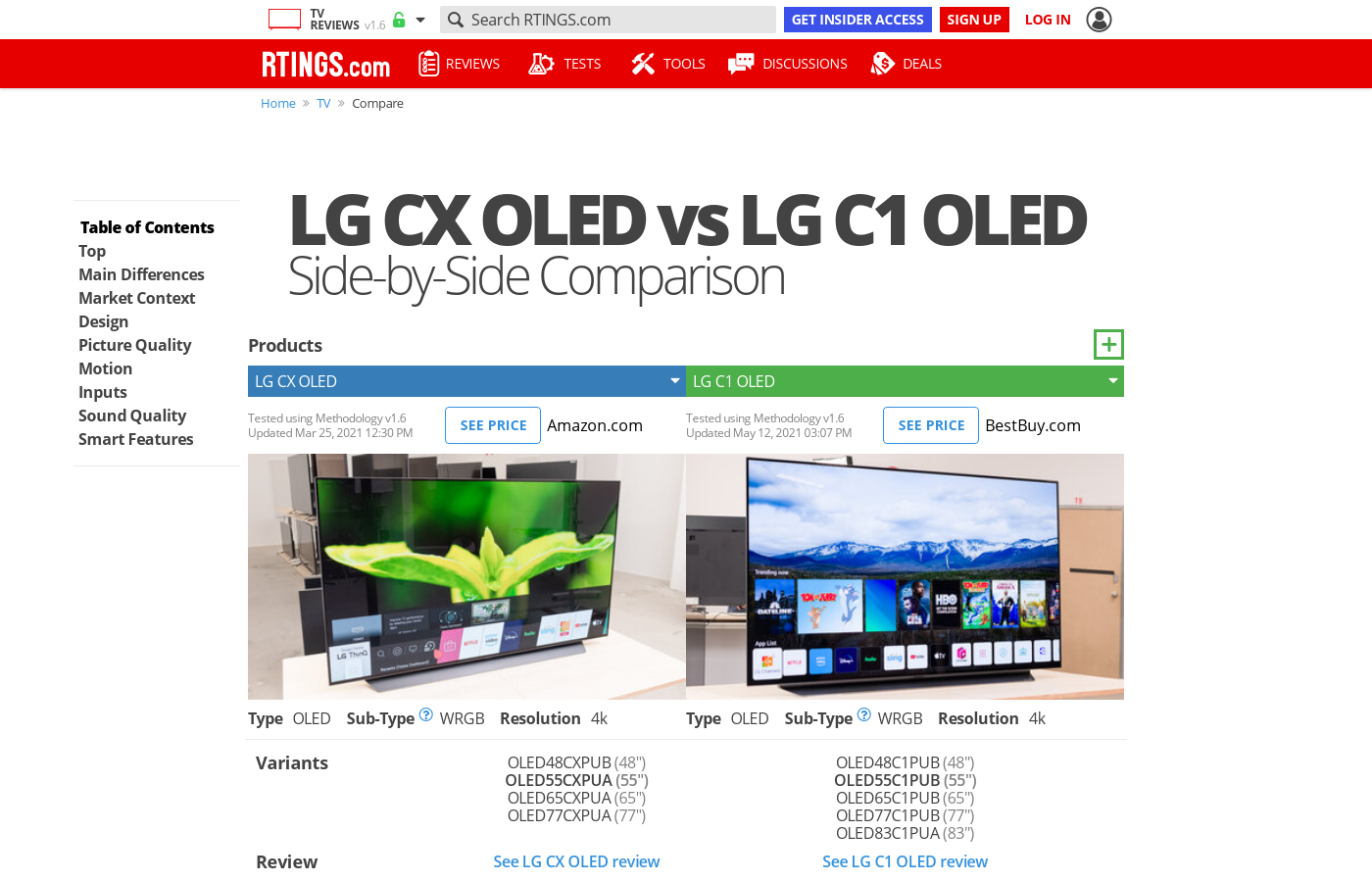
QLED vs OLED vs LED TVs: Which one is the best?
When buying a new TV, the different technologies can be confusing. Marketing terms like OLED, QLED, and LED may all seem the same to you, but they actually refer to different panel types.
Sharing a pretty decent article online which is a good primer on all that you need to know about the different technologies in TVs today.

The article goes on to elaborate the various parameters that can help determine our choice.
| LED | QLED | OLED | |
| Black Level | Excellent | Excellent | Perfect |
| Gray Uniformity | Decent | Decent | Excellent |
| Brightness | Great | Excellent | Decent |
| Color Gamut | Good | Excellent | Great |
| Viewing Angle | Poor | Poor | Excellent |
| Image Retention | Excellent | Excellent | Poor |
| Motion Blur | Good | Great | Perfect |
| Price and Availability | Excellent | Great | Decent |
Note: The article is US based but has good information for anyone looking to purchase a new TV.
As of now the article was last updated on Feb 2021 which is fairly current on the information available out there.
Hope this useful for those who are looking for information on TV technology and the different parameters.
Regards
.


